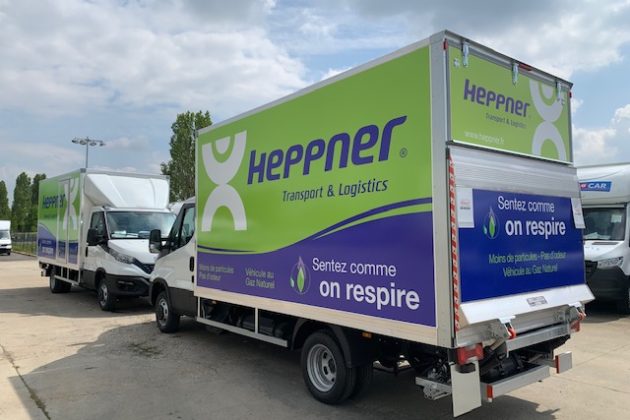
Tahar Achar

Pouvez-vous nous présenter votre entreprise ?
J’ai créé ma société TAC EXPRESS dans la région Auvergne-Rhône-Alpes en 2016. Cinq ans plus tard, je comptabilise déjà 13 salariés en CDI, dont 3 prestataires en plus durant les fêtes et les soldes. Conscient de l’impact environnemental de mon secteur, j’ai rapidement souhaité opérer une transition énergétique en verdissant ma flotte de véhicules. Aujourd’hui, ma société compte deux véhicules roulant au gaz naturel.
Pourquoi travaillez-vous avec Heppner ? Depuis quand ? Quelle est la nature de votre relation ?
Je suis ravi de constater que le Groupe Heppner partage nos ambitions de réductions des émissions Diesel. Les différentes mesures lancées depuis quelques années ont poussé les sociétés comme la mienne à se surpasser et à passer au gaz naturel. Ainsi, mettre en place une stratégie qui répond aux attentes environnementales permet à TAC EXPRESS de s’agrandir et de développer son chiffre d’affaires.
Le transport est un secteur qui comporte de nombreuses mutations (législation, prix du carburant…) Il est donc important pour moi de garantir ma rentabilité grâce à un panel de clients avec lequels j’entretiens d’excellentes relations professionnelles. C’est le cas avec Heppner, qui m’accompagne durablement.
Vos clients sont-ils sensibles à l’impact environnemental du transport ? À ce titre, votre implication dans le projet de transition énergétique avec Heppner représente-t-elle une valeur ajoutée pour votre entreprise ? Comment la valorisez-vous ?
Je suis sensible à l’impact environnemental du transport de manière générale et je suis fier de participer à cette transition énergétique. Agrandir de plus en plus ma flotte « verte » me pousse à m’investir davantage dans cette transition et c’est pourquoi je compte faire l’acquisition de plusieurs véhicules électriques à l’horizon 2022 – 2023.
Heppner est aussi développé au niveau national et notamment sur le bassin lyonnais. Ce cas de figure permet à mes camions de s’approvisionner au gaz naturel à Lyon et à Villeurbanne, deux villes phares pour nos périmètres d’action.
Sans Heppner, auriez-vous pu opérer cette transition ? Si oui, à quelle échéance ?
TAC EXPRESS est ravie de poursuivre sa collaboration avec Heppner ; le groupe a toujours été un partenaire de qualité au niveau business et il sait négocier le prix des véhicules GNV auprès des constructeurs et faciliter l’accès au carburant. Ces prestations représentent donc un gain de temps et d’argent conséquent. Par définition, oui, j’aurais eu la possibilité d’opérer cette transition, mais peut-être avec plus d’obstacles.
D’un autre côté, j’ai obtenu un prêt à la banque et celui-ci correspond à la somme d’un leasing, ce qui reste rentable pour ma société. En revanche, les pouvoirs publics ne me soutiennent pas assez. Des financements existent mais ils pourraient être plus importants, car certains coût, eux, augmentent.
Les Zones à Faibles Émissions vous concernent-elles ? Les nouvelles réglementations environnementales en termes de transport représentent-elles une menace ou une opportunité pour le secteur ?
Les ZFE sont une opportunité pour le secteur car elles distinguent les efforts des sociétés de transport. Ces mesures me concernent directement, les règlementations en vigueur étant déjà en place sur la métropole de Lyon.
Heppner a donné un « coup de pouce » à ses partenaires et a ouvert la voie vers un programme de financement pour les véhicules GNV. Certains acteurs du transport sont embarqués dans un vaste programme énergétique, sans forcément bénéficier de l’approvisionnement nécessaire en carburant. Pour ma part, je ne déplore aucune difficulté de ce genre.
